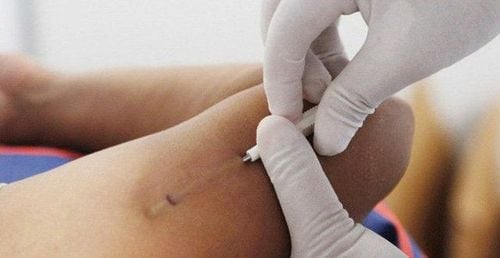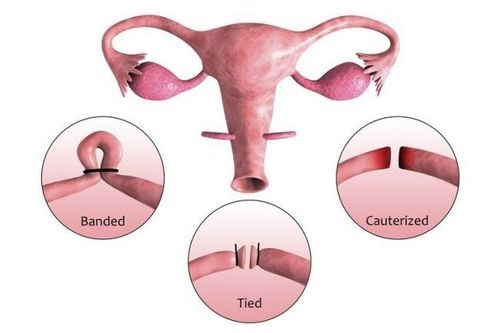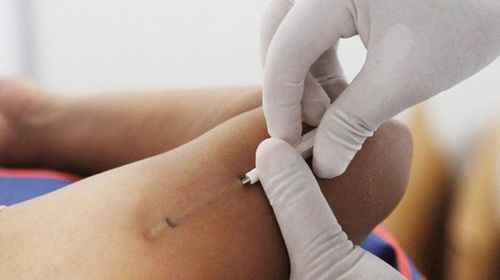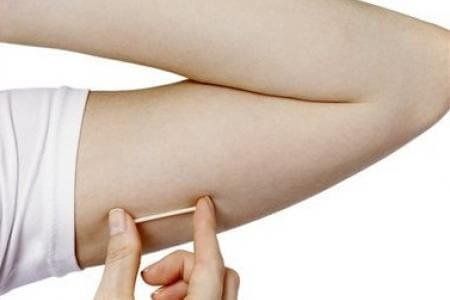This is an automatically translated article.
The article was professionally consulted by Specialist Doctor I Pham Thi Yen - Obstetrician - Obstetrics and Gynecology - Vinmec Hai Phong International General Hospital.The contraceptive implant is one of the most effective contraceptive methods for women after giving birth, breastfeeding or at any time. How soon after giving birth can the contraceptive implant be implanted?
1. What is the contraceptive implant?
Today, there are many different methods of contraception used by women. And if your body does not have any medical problems, it will easily adapt to most birth control methods. The problem is that you should choose which method is suitable with your living habits and economic conditions so that it can be applied long-term, safely and effectively. Each method of contraception has its own advantages and disadvantages, but in general it is still quite safe. Women should learn to be able to choose the right form of contraception for themselves.Contraceptive stick is a pill containing the hormone progesterone that is implanted in the skin under the arm to release the hormone into the body to help prevent pregnancy effectively. The contraceptive stick has a systemic effect, changes the menstrual cycle and in some cases can cause menorrhagia or amenorrhea. However, in general, in terms of the effects it brings, this method is quite good and is used by many people. Side effects may occasionally occur, but they can be adjusted gradually over a month or two. Women should perform the best implantation on the first 5 days of the cycle and make sure you are not pregnant.

Cấy que tránh thai giúp tránh có thai ngoài ý muốn hiệu quả
2. How long after giving birth can I get a contraceptive implant?
Usually 4 weeks after giving birth, women will start having their periods again, this corresponds to your ability to get pregnant again. Therefore, if you do not want to be pregnant "continued", women should pay attention to contraception from this point on. There are 2 cases to note:If breast-feeding: It is best 6 weeks after giving birth, if it is not yet 6 weeks postpartum, only insert the rod when there is no other method of contraception. If you are not breast-feeding and less than 3 weeks postpartum: You can have the implant at any time as long as you are sure you do not have any exclusionary conditions or are not pregnant. The most suitable time to implant a contraceptive for women is the first 5 days of the cycle (ie the first 5 days from the first menstrual period) or within the first 5 days after a miscarriage, within 21 days after giving birth. . If applied correctly, you do not need to use anything more, but if not correct, you may need to use additional condoms within 7 days after implantation to avoid the risk of pregnancy.
After 3-5 years, if you want to continue to prevent pregnancy with an implant, you need to perform the procedure of removing the old rod and replacing it with a new one to achieve the best contraceptive effect. The contraceptive rod is usually implanted in the inner side of the non-dominant arm (usually the left hand), because this arm is rarely heavy or overactive, helping to prevent the rod from being displaced from its original position.

Trong thời gian cho con bú có thể cây que tránh thai
3. Is the contraceptive implant safe?
There is no such thing as perfect birth control, and each has its own pros and cons. The most important thing is to choose the type that is suitable for your health status, living habits, economic conditions... to be able to use it for a long time.Overall, IUDs are safe, highly effective (up to 99.95%) and have good fertility potential. However, at the same time, there are some possible side effects such as: change in menstrual cycle, irregular bleeding, headache, dizziness, nausea, decreased libido, menorrhagia or amenorrhea... These side effects can be uncomfortable for some women but do not affect pregnancy after stopping the implant, nor affect the health of the user. These phenomena will also only happen for a short time and will quickly disappear.
The advice for women is to consider the pros and cons of each method of contraception in advance, sometimes it is also necessary to accept some small cons to achieve the desired effectiveness and convenience.
Doctor Pham Thi Yen has 11 years of experience in examination and treatment in the field of Obstetrics and Gynecology. Doctor with strengths and deep understanding in:
Examination and consultation of normal pregnancies, pathological pregnancies, high-risk pregnancies Examination and treatment of gynecological diseases: cervicitis, cervical ectropion Surgery Laparoscopic surgery for gynecological diseases: ectopic pregnancy, uterine tumor, ovarian tumor Surgery for breast, vulvar, vaginal, cervical tumors Obstetric surgery: cesarean section, examination and treatment of endocrine disorders in women of all ages: puberty, reproductive age; perimenopausal age. To register for examination and treatment at Vinmec International General Hospital, you can contact Vinmec Health System nationwide, or register online HERE
MORE
Contraceptive patch: What you need to know Contraception with pills, patches and rings Hormonal methods of contraception: Patch, vaginal ring, injection, implant














